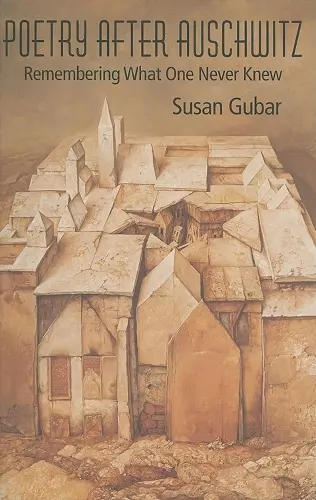Poetry After Auschwitz
Remembering What One Never Knew
Format:Paperback
Publisher:Indiana University Press
Published:18th Oct '06
Currently unavailable, and unfortunately no date known when it will be back

An eloquent exploration of Holocaust verse in English by one of America's leading feminist critics
Demonstrates that Theodor Adorno's famous injunction against writing poetry after Auschwitz paradoxically inspired an ongoing literary tradition. By speaking about or even as the dead, this work tells what it means to cite, reconfigure, consume, or envy the traumatic memories of an earlier generation.
In this pathbreaking study, Susan Gubar demonstrates that Theodor Adorno's famous injunction against writing poetry after Auschwitz paradoxically inspired an ongoing literary tradition. From the 1960s to the present, as the Shoah receded into a more remote European past, many contemporary writers grappled with personal and political, ethical and aesthetic consequences of the disaster. By speaking about or even as the dead, these poets tell what it means to cite, reconfigure, consume, or envy the traumatic memories of an earlier generation. This moving meditation by a major feminist critic finds in poetry a stimulant to empathy that can help us take to heart what we forget at our own peril.
A sensitive and superb treatment of Holocaust literature; the author . . . treats Holocaust art with sensitivity, introspection, respect, and humanity in a clear, readable, and elegant prose. Gubar's book will prove to be a seminal work in Holocaust studies.
* H-HolocauISBN: 9780253218872
Dimensions: unknown
Weight: 467g
340 pages